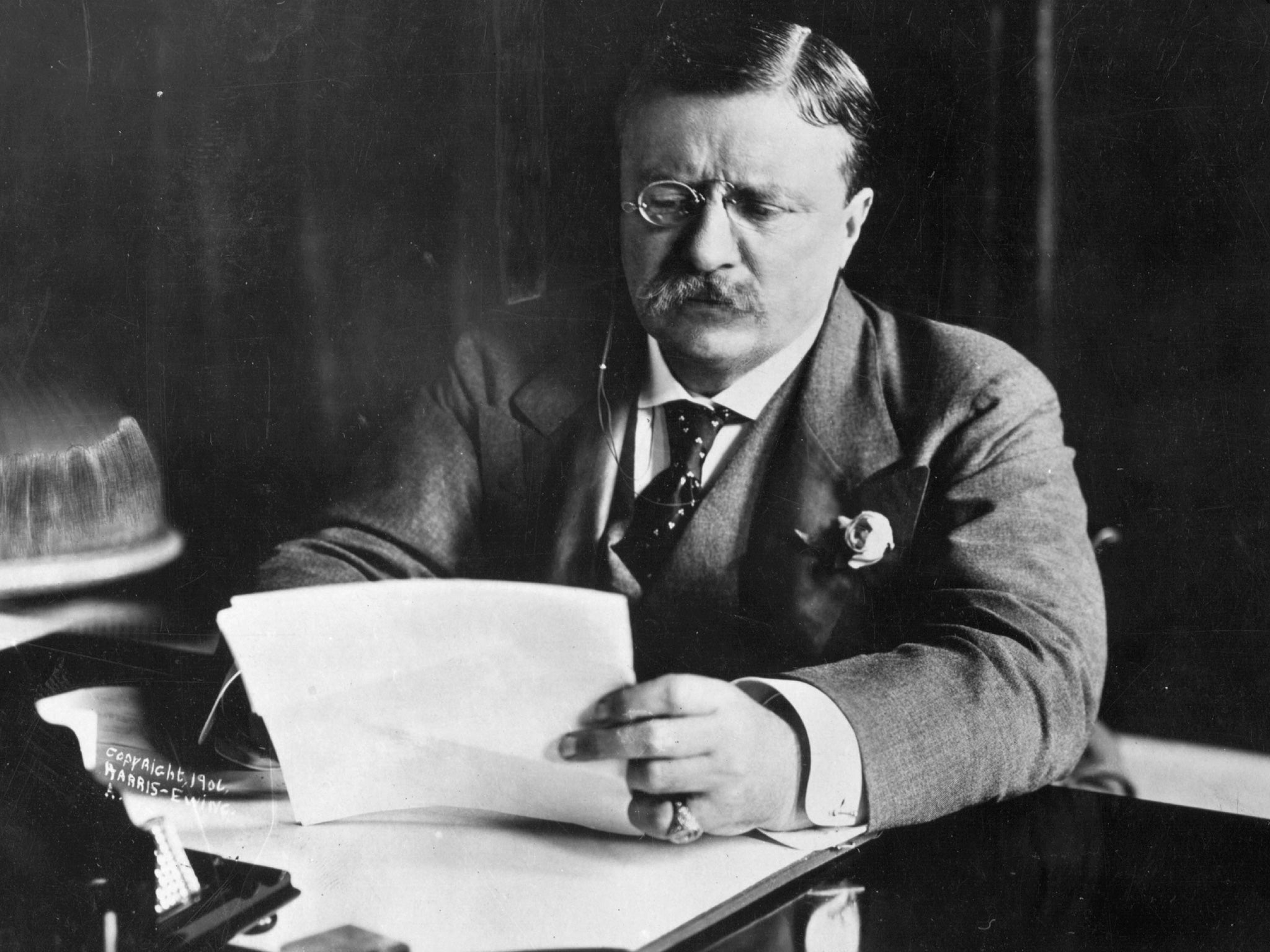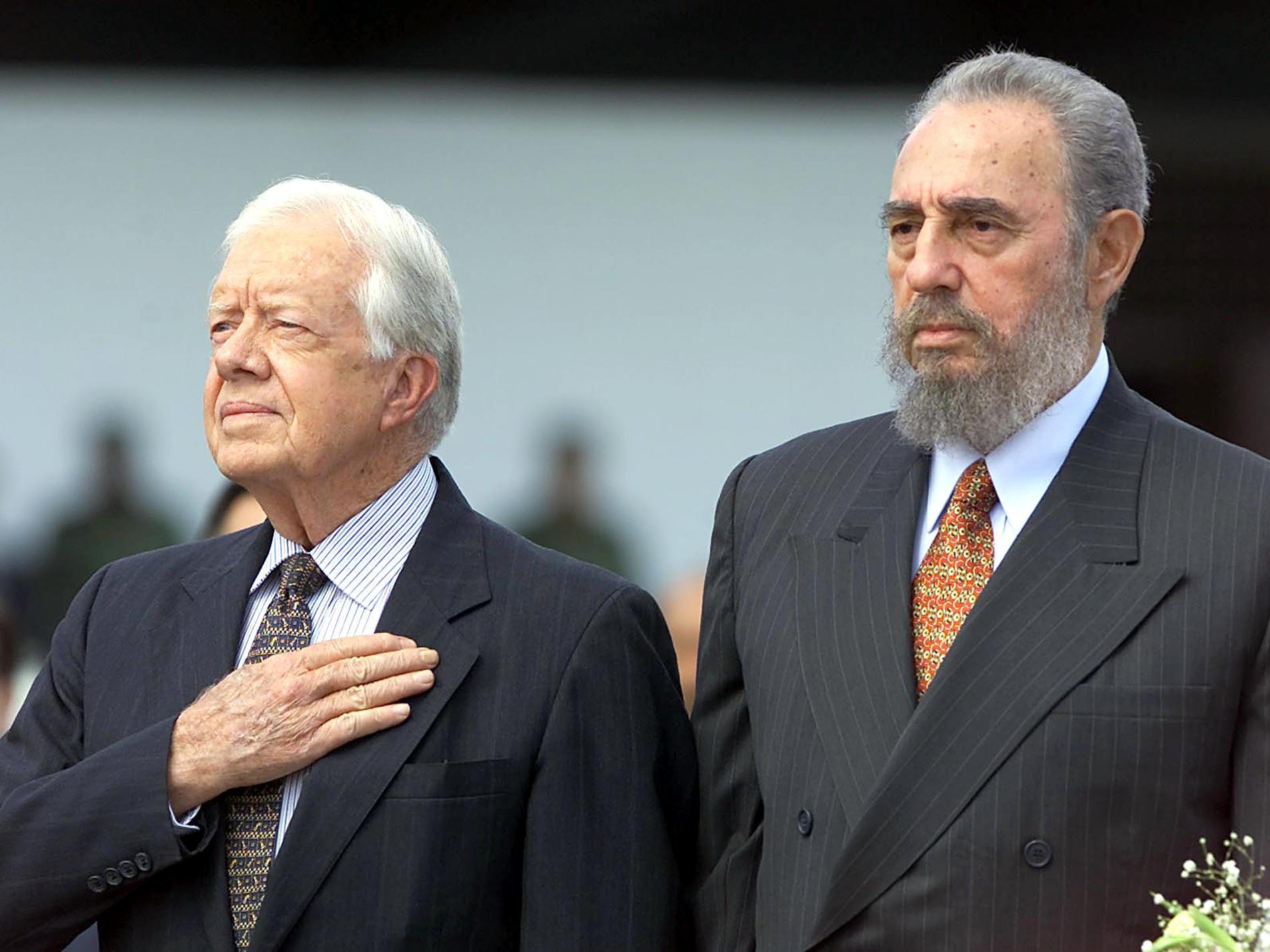
Monday marks Presidents' Day in the United States, held to honour the birthday of founding father George Washington.
While the day-to-day dealings of their time in the White House are documented in intense detail, what outgoing presidents do next is often much less well-known and frequently interesting.
The most recent president to depart office, Donald Trump, has bucked the trend that saw most of his predecessors largely stay out of politics.
Instead he has stewed over conspiracy theories – most notably his so-called Big Lie that the 2020 election was stolen from him – and plotted revenge against his enemies, supporting primary challengers against the “RINOs” (Republicans In Name Only) who he feels were insufficiently loyal to him.
Banned from Twitter, Facebook and YouTube for inciting violence, his public profile has been somewhat muted, at least compared to the daily tweet blasts that characterised his presidency. But in February 2022 he launched his own social media app, Truth Social – closely modelled on Twitter – in the hope of amplifying his message.
Mr Trump – still widely popular in the Republican party – has been coy about whether he intends to run for the White House a third time in 2024. Were he to win, he would become only the second president of the United States, after Grover Cleveland, to serve two non-consecutive terms.
Barack Obama and former first lady Michelle have written books, worked with children's charities, carried out public speaking engagements and announced the signing of a multi-million dollar deal to produce TV shows and documentaries for Netflix last May.
Still widely-admired since leaving office in January 2017, Mr Obama had already appeared as the star guest on the opening episode of David Letterman’s new Netflix talk show and the site recently added Greg Barker’s HBO documentary The Final Year to its roster, which covers the tail end of his administration and preparations for the transition of power. Evidently the 44th president screentested well.
While Mr Obama had joked about going to work for Spotify when he left the Oval Office for the last time, he instead took the family kite surfing in the British Virgin Islands and white-water rafting in Bali, enjoying some well-deserved rest and relaxation.
He has also devoted time to establishing his own foundation and planning the Obama Presidential Center in Jackson Park on Chicago’s South Side, a library and “centre for citizenship” being built in the neighbourhood where he got his start in politics as an enthusiastic young community organiser.
Thomas Jefferson (1743-1826) founded the University of Virginia when he retired from politics, designing the buildings, planning the institution’s curriculum and serving as its first rector when it opened in 1825.
John Quincy Adams (1767-1848) became the only president to stay on in the cut-and-thrust arena of Washington politics at a lower tier when he was elected to the House of Representatives in 1831. Adams served for 17 years and made the abolition of slavery his pet cause, earning the nickname “Old Man Eloquent” in tribute to his dedicated service.
Grover Cleveland (1837-1908) liked the job so much he returned for a second, later stint, the only president – so far – to have done so. Having served his first term between 1885 and 1889, Cleveland was succeeded by Benjamin Harrison before returning to the White House between 1893 and 1897, making him both the 22nd and 24th president of the US. Harrison, for his part, used his twilight years to marry his sweetheart Mary Scott, 25 years his junior. Good show.

After serving two terms between 1901 and 1909, Theodore Roosevelt (1858-1919) ran for a third time before limits were introduced, but lost to Woodrow Wilson. He and his son Kermit thereafter set out for Brazil in 1913 on a scientific survey of the superbly named Rio da Duvida (“River of Doubt”), risking death by malaria in the Amazon with the explorer Candido Rondon. Their adventures are described in his best-selling travel book, Through the Brazilian Wilderness.
If that sounds too much like hard work, ex-presidents can take a leaf out of Herbert Hoover’s book instead. Quite literally. It’s called Fishing for Fun and was published in 1963, an ode to the restorative pleasures of angling. Hoover (1874-1964) was so well known for his love of lazing by the riverside in his native Iowa that he was known as “the Fishing President”.
Writing was a common draw: Calvin Coolidge (1872-1933) penned a syndicated newspaper column and even Gerald Ford (1913-2006) composed an unlikely tome, the anecdotes collection Humour and the Presidency in 1987.
All departing presidents face a degree of expectation about how they use their fame and influence for the public good and none have surpassed Jimmy Carter when it comes to tireless humanitarian endeavour.

Establishing the Carter Center in 1982, the Democrat has served as a diplomat and ambassador across the world, mediating in myriad disputes and conflicts – notably in bringing North Korea and Cuba in from the cold – and earning a Nobel Peace Prize in 2002. He has even been credited with helping eradicate the blight of Guinea worm from Africa. “I can’t deny I’m a better ex-president than I was a president,” he once said.
Bill Clinton has likewise been a busy advocate for good causes and has by all accounts amassed a small fortune from the international after-dinner speaking circuit.
He was prominent on the campaign trail in 2016 in support of his wife Hillary and would have no-doubt served as the first-ever “First Dude” with good humour had she beaten Donald Trump to the White House.
George W Bush has been relatively quiet since leaving office, only really raising eyebrows with his paintings of heads of state and world figures he met while in office, including Vladimir Putin, Tony Blair and the Dalai Lama, a hobby inspired by reading Winston Churchill’s 1932 essay “Painting as a Pastime”.
Whether he’s made any money from his unexpected dabbling in oils is unknown but he has received acclaim for his work in the “high-amateur” style and published a collection, Portraits of Courage, last year.







